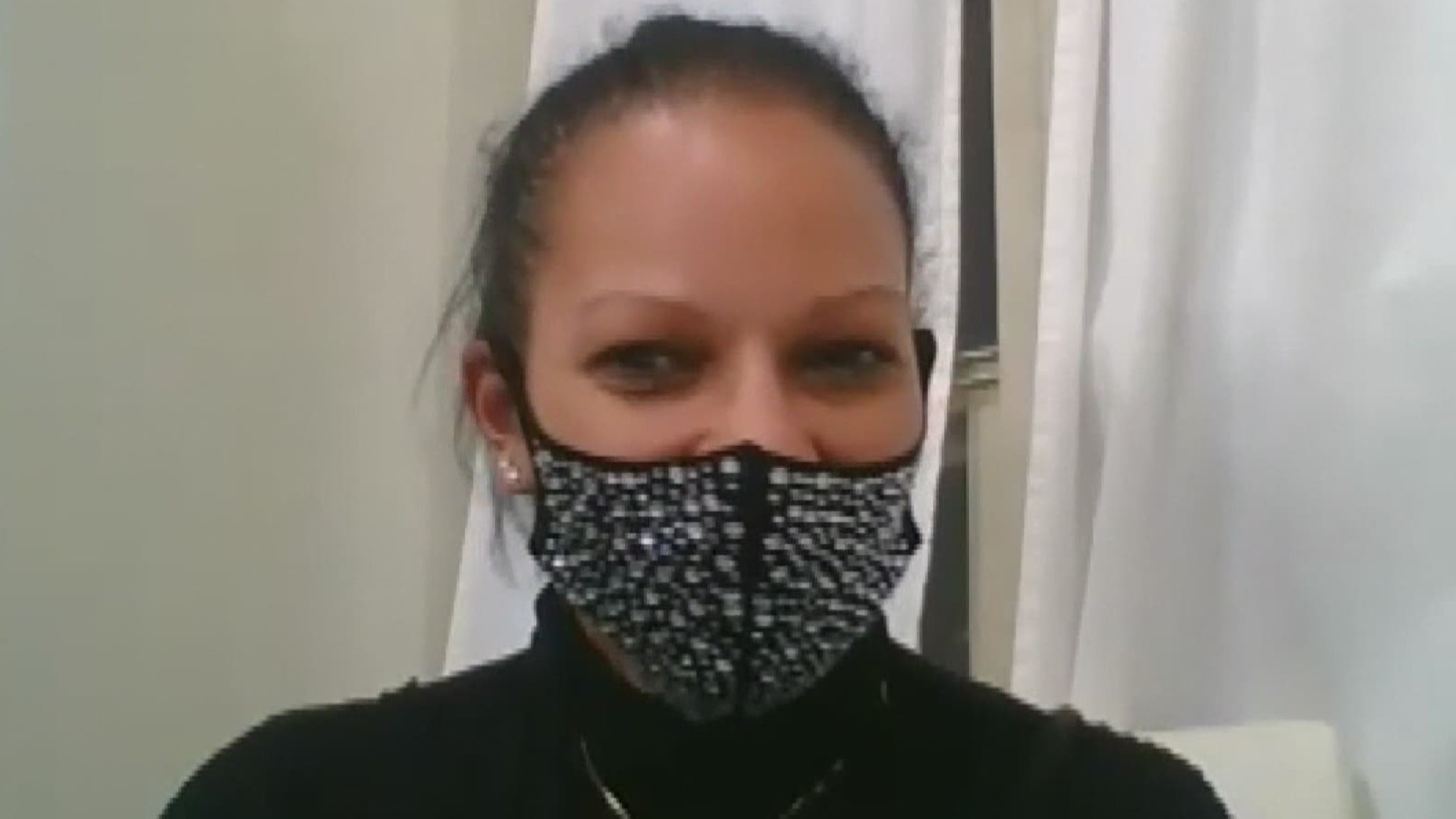INDIANAPOLIS — In the interest of full disclosure, 13News reporter Emily Longnecker notes the woman in this story is a longtime friend. They grew up together in Pennsylvania and both ended up in Indianapolis. "I haven't seen her since before COVID hit," Longnecker said. "This past weekend, though, we ran into each other and I learned just how much the pandemic has changed her life in the past nine months."
The coronavirus pandemic is impacting those who are waiting on a life-saving transplant.
The wait is stressful enough as it is, but on top of that, when the organ they need is finally available, they cannot have COVID-19. That requirement comes with a lot of added responsibility.
One day last October, Jamie Klussmann-Pack was a healthy 49-year-old. A day later, she wasn't.
"I was in a coma. I knew nothing," she said.
When she woke up in the hospital a week later, Jamie learned she'd been bleeding internally and needed a new liver. She had a condition called cirrhosis, which was passed down from her family.
"It was not what I was expecting. It was a hard time. I went on the transplant list," Klussmann-Pack said.
Since then, all the wife and mother of three can do is wait for the call that will ultimately save her life.
"You just wait. You have to have your phone on 24/7," she said.
When that call comes, Jamie has to be ready. During a global pandemic, that means having more than just a suitcase packed.
If Klussmann-Pack wants to get the life-saving liver she desperately needs, she has to be COVID-19 free when the time comes. That has meant getting tested every other week since last March to make sure she doesn't have the virus.
"We just have to be very careful. Very careful," she said.
She's not alone. Right now, there are more than 100,000 people across the country who are also waiting for a life-saving transplant.
According to the Indiana Donor Network, another person is added to that list every 10 minutes. More than a thousand of those patients are right here in Indiana.
Just like Jamie, frequent rapid testing for the coronavirus is part of their life now. That's because when you're talking about a successful transplant, minutes count.
"Hours may make one organ viable versus non-viable," said Dr. Nicolas Barros, IU medical director of transplant and infectious diseases.
For doctors managing those transplants, COVID-19 can't get in the way.
"We have to have the maximum chances, whenever we call someone, that person will be able to receive the organ," Barros said.
On the other end, organ donors must also be tested to make sure they're virus-free, too.
According to the Indiana Donor Network, COVID-19 didn't slow Hoosiers down from giving the gift of life. Despite the pandemic, a record number of Hoosiers - 252 of them - donated organs this past year.
"We're in this all together as a society and trying to protect each other," Barros said.
For Jamie, she's in it with and for her family.
"My family's my rock. I cannot imagine that I will go without fighting for them," she said.
Fighting to stay healthy and COVID free for when that call finally comes. Knowing, though, that it will mean another family has lost someone they love.
"It's very hard. Heart-wrenching for me," Klussmann-Pack said.

